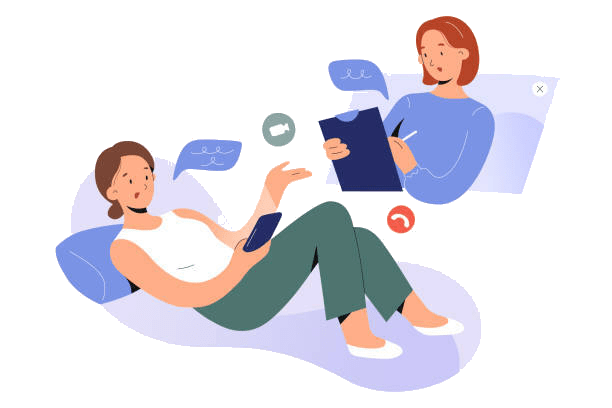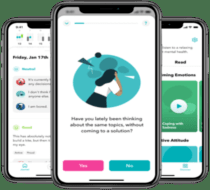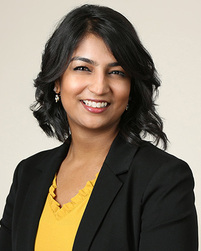Online Bipolar Disorder Counseling | Best therapist for Bipolar Disorder help
- Affordable and confidential online Bipolar Disorder counseling sessions
- Video calls or chat sessions with Counsellors/ Psychologists specialized in Bipolar Disorder issues
- Improve your mental wellbeing whenever and wherever you want
Begin Therapy
Consult online with best Therapist
"*" indicates required fields
A ‘Better’ Model for Bipolar Disorder Counseling
Mantracare is with you on the journey to heal your Bipolar Disorder. We will help you right from knowing the root causes of your Bipolar Disorder to learning healthy coping mechanisms. Our therapies are 100% online and are conducted via video call or messages. So, feel free to take sessions wherever, whenever you need it
Specialized Therapists
As per your story and case, we assign the best counsellors experienced in Bipolar Disorder issues. They work with you proactively to understand and address the root cause of your bipolar disorder, hopelessness and persistent mood swings.
Affordable & Effective
We believe that therapies should be driven more by “Need” than “ability to pay”. Our online sessions are 90% less expensive than face-to-face therapy. Online counseling starts at just $10.
Bipolar Disorder Self Care
We provide you continuous Bipolar Disorder help with self-care tools, mental healing videos, chat groups, meditations, breathing exercises and more. Our therapists are available 24/7 via messages to provide care, whenever and wherever you need it.

Best Bipolar Disorder Counseling, Now in Your Pocket
Our therapists or counselors are available in all parts of the world, accessible via an easy-to-use mobile application. Our matching experts takes your preferences in consideration and connect you with therapists specialized in Bipolar Disorder issues. Movever, there are hundreds of free self help tools on our app, available 24×7.

How It Works
After filling out our questionnaire, you will be matched with a Bipolar Disorder counselor based on your needs and preferences. You and your counselor will get your own secure and private “therapy room” where you can message your counselor at any time wherever you are. You can also schedule a session so speak live with your counselor over video or phone.
You can write or talk about Bipolar Disorder, the things going on in your life, ask questions, and discuss the challenges you’re facing and your counselor will provide feedback, insights, and guidance. Together you’ll work towards making a positive change in your life, accomplishing your goals, and overcoming your Bipolar Disorder.

Signup for Bipolar Disorder counselling
Just fill up a 5-minute online form to tell us about your Bipolar Disorder symptoms and treatment expectations.

Meet your Therapist
Based on your preferences and neet, we will connect you with Depression counselors that are available 24/7 to you via call or chat.

Connect to our app
Heal yourself with video or chat counselling sessions available in the app. Access helpful self-care tools on our app to help you heal your depression, and take control of your life
Meet the best Bipolar Disorder Therapists
MantraCare psychologists help you counter Bipolar Disorder through a combination of positive conversations, exercises, and meditations. Our Bipolar Disorder therapy services are better than traditional face-to-face counseling in multiple ways:
- Over 5,000 counselors & therapists with expertise in Bipolar Disorder and other areas
- All counselors are licensed, trained, accredited and highly experienced
- Match with an available counselor who is the best fit for your Bipolar Disorder needs
- Unlimited private one on one communication with your therapist
- Gain access to constructive, educational group webinars on Bipolar Disorder

A Guide on Bipolar Disorder
Understanding Bipolar Disorder
Bipolar disorder, formerly known as manic depression, is a mental health disease that involves emotional highs (mania or hypomania) and lows (depression).
You may feel gloomy or hopeless when you are depressed, and you may lose interest or pleasure in most activities. You may feel ecstatic, full of energy, or particularly irritated when your mood swings to mania or hypomania (a milder form of mania). Sleep, energy, activity, judgement, conduct, and the capacity to think clearly can all be affected by mood fluctuations.
Types of Bipolar Disorder
There are some types and subtypes of Bipolar Disorder. Some of the common ones are:
- Bipolar I is a kind of bipolar disorder. At least one manic episode has occurred, maybe preceded or followed by hypomanic or severe depressive episodes. Mania can sometimes lead to a disconnection from reality (psychosis).
- Bipolar II is a kind of bipolar disorder. You’ve experienced at least one severe depressive episode and at least one hypomanic episode, but no manic episode.
- Cyclothymic disorder is a kind of cyclothymia. You’ve experienced several times of hypomania symptoms and periods of depressed symptoms for at least two years — or one year in children and teens (though less severe than major depression).
- Other kinds. Bipolar and associated illnesses, for example, might be caused by particular medications or alcohol, or by a medical condition such as Cushing’s syndrome, multiple sclerosis, or stroke.
Bipolar II disorder is a distinct diagnosis, not a lesser version of bipolar I disease. Individuals with bipolar II disease can remain depressed for prolonged periods of time, which can cause considerable disability. Manic episodes in bipolar I condition can be severe and hazardous.
Although bipolar illness can strike at any age, it is most commonly diagnosed in adolescence or the early twenties. Symptoms differ from one individual to the next, and they might change over time.
Stages & Symptoms of Bipolar Disorder
There are mainly 4 times of bipolar disorder:
- Mood episodes: These are a feature of bipolar disorder and are the first stages of sadness and mania, but there are also additional stages. It’s critical to understand the symptoms of each stage so that your Mercy provider can give the appropriate therapy.
- Continuation and maintenance phase: Following a bipolar mood episode’s remission, you’ll most likely require maintenance treatment to delay or avoid future episodes. Medication and psychotherapy are part of the standard maintenance treatment.
- Mixed and mood state: Symptoms of both manic and depressive moods are present in a mixed mood state. Periods of low mood, fueled by impulsive overactivity and poor judgement, might increase the risk of self-harm or aggression towards others.
- Acute Mania: Acute mania is characterised by a heightened sense of energy or irritability, as well as increased activity. Exaggerated self-esteem, a decreased need for sleep, racing thoughts, excessive distractibility, and episodes of reckless conduct such as spending binges, sexual activity, and drug use are all possible signs.
- Acute Major Depressive Episodes: During a two-week period, involves five or more of the following symptoms for most of the day or almost every day:
- Sadness, desolation, or despair are all words that come to mind when one thinks of sadness, desolation,
- Exhaustion and a lack of energy are two of the most common symptoms of exhaustion.
- Self-loathing, remorse, and feelings of worthlessness and irritability
- Suicide or death thoughts on a regular basis
- Having no interest in or enjoyment from most, if not all, activities
- Unintentional weight loss or gain of more than 5%, or a daily shift in appetite
- Observable agitation or restlessness due to insufficient or excessive sleep
- Having trouble concentrating or making judgments
The severity of depressive symptoms varies greatly from one person to the next. Symptoms might sometimes appear to be a shift in a person’s regular demeanour.
Causes of Bipolar Disorder
Some of the major causes of bipolar disorder are:
- Brain Circuits:
Bipolar illness is thought to be caused in part by a problem with certain brain circuits and the function of brain chemicals called neurotransmitters, according to experts. Norepinephrine (noradrenaline), serotonin, and dopamine are three brain chemicals that have a role in both brain and body processes. Serotonin and norepinephrine have long been related to psychiatric mood disorders including depression and bipolar disorder. Dopamine regulates nerve circuits inside the brain that control pleasure and emotional reward.
Sleep, wakefulness, appetite, sexual activity, impulsivity, learning, and memory are all linked to the neurotransmitter serotonin in the brain. Researchers think that mood disorders are caused by aberrant functioning of brain circuits that use serotonin as a chemical messenger (depression and bipolar disorder). - Genetic: Bipolar disease appears to run in families, according to several studies of bipolar patients and their relatives. According to the findings, an identical twin (of a bipolar twin) has a 40% to 70% risk of developing bipolar illness in their lifetime.
- Environment and lifestyle: Children of bipolar parents are frequently exposed to severe environmental stresses, according to studies. Living with a parent who has a history of mood swings, alcohol or substance addiction, financial and sexual misdeeds, and hospitalizations are all examples of this. In people who are genetically susceptible to bipolar disorder, environmental stresses can also cause episodes. Children in bipolar households, for example, may have a parent who is unable to manage his or her moods or emotions.
Treatment for Bipolar Disorder
According to a report, almost half the people who suffer from Bipolar Disorder get better within a span of just one year. It takes time for the disorder to stabilize because even after diagnosis, there are many factors that influence moods, cycles, or symptoms.
Medications
Medication can help to treat this condition. Doctors prescribe these medications for a shorter period of time and it depends on the severity of mania. In some cases, the doctors prescribe the medicines at the same time and sometimes that’s not the case.
Bipolar Disorder medications include mood stabilizers that work to control the moods of the patient. Doctors use some other Bipolar Disorder medications to treat the mania and stop it from recurring. While some people respond well to its medication, there are also those that do not get great results from medication. They need to try other treatment options without thinking much about it. In addition, when the disorder is in its advanced stage, it’s important to seek out support groups, such as support groups for bipolar disorder, because getting a handle on the disorder is a key element in helping someone live a more productive life.
Bipolar Disorder Therapy
Psychotherapy
Psychotherapy is an important aspect of bipolar illness treatment and can be done alone, in a family, or in a group. Various forms of therapy may be beneficial. These are some of them:
- Interpersonal and social rhythm therapy (IPSRT) : These are two types of rhythm therapy: The stability of everyday rhythms such as sleeping, waking, and mealtimes is the emphasis of IPSRT. Better mood control is possible with a steady schedule. Establishing a regular regimen for sleep, nutrition, and exercise can help those with bipolar disorder.
- Cognitive behavioural therapy (CBT): It is a type of therapy (CBT). The goal is to discover and replace unhealthy, negative attitudes and habits with healthy, good ones. CBT can assist you in determining what causes your bipolar episodes. You’ll also discover helpful techniques for dealing with stress and stressful circumstances.
- Psychoeducation: Psychoeducation (learning about bipolar disorder) can assist you and your loved ones comprehend the illness. Knowing what’s going on can help you receive the best care, recognise problems, create a relapse prevention strategy, and stay on track with treatment.
- Family-focused therapy: Therapy that focuses on the family. Family support and communication can help you keep to your treatment plan and detect and handle warning signals of mood swings for you and your loved ones.
Electroconvulsive therapy (ECT)
When everything fails, in addition to medication, some doctors resort to electroconvulsive therapy (ECT). Doctors perform this therapy when the patient is actually staying at the hospital. Doctors put patients under and then shock them with a mild electrical current. This shock creates brief feelings of discomfort, which are commonly mistaken for nervousness or a feeling of losing control. The treatments are often successful, but they are often very costly, resulting in a large number of people having to undergo the procedure.
Lamotrigine Therapy
Some studies have suggested that Lamotrigine might have a benefit in some patients with Bipolar disorder and depression who do not respond well to conventional treatments, such as mood stabilizers or antidepressants. It is not clear whether Lamotrigine is more effective at treating manic episodes than non-pharmacologic therapies, however. Sometimes many people with Bipolar Disorder do not respond to major mood-stabilizing medications, Doctors consider it to be the last treatment option. As you can see, there are many treatment options for this ailment. You may find that you need to try a combination of medications, psychotherapy, vitamins, exercise, and lifestyle changes. Doctors provide treatment only on the basis of the severity of the condition. By staying consistent with your treatment options, you can live a better quality of life.
10,000+ Happy & Healed Bipolar Disorder patients

“Hi, I am a 35 years old woman working in an MNC. I’ve had bipolar disorder type I for the past three years and was just diagnosed. I have observed that I’ve lost weight and that I’m not sleeping properly. I sympathise with anyone who is suffering from mental illness, especially if their family or friends do not understand. I continue to accept and live with what is every day. I’m working on my balance and have a wonderful support system that is Mantra Care. I am able to deal with my anger issues well.”
Kevin, 1 year on MantraCare
5000+ Bipolar Disorder Counselors from across the world








Our therapists take care of your ‘unique’ needs
Not all mental health problems are the same. Different types of problems require different treatments. At MantraCare, 5000+ therapist’s cover a range of specialities to meet your needs:
Frequently Ask Questions
Bipolar Disorder is a common and serious medical illness that negatively affects how you feel, the way you think and how you act. Bipolar disorder, formerly known as manic depression, is a mental health disease that involves emotional highs (mania or hypomania) and lows (depression).
Some of the common symptoms of Bipolar Disorder are feelings of sadness, hopelessness and emptiness. Other major symptoms include: cramps, digestive issues and bloating.
Some of the most serious complications of major Bipolar Disorders are:
- substance abuse (for example, alcohol or drugs)
- anxiety.
- heart and cardiovascular conditions.
- diabetes.
- unhealthy weight (such as obesity)
- suicidal thoughts.
Bipolar Disorder can be of following types:
- Bipolar I
- Bipolar II
- Cyclothymic disorder
When Bipolar Disorder becomes a major concern, it starts causing troubles in your day-to-day life. You will not be able to concentrate even after trying so hard. You will unnecessarily start feeling angry and annoyed.
Mood swings and impulsive conduct can occasionally indicate mental issues other than bipolar illness, such as:
- Disorders of substance abuse
- Personality problem on the edge
- Disorders of conduct
- Disorders of impulse control
- Disorders of development
- Attention deficit hyperactivity disorder (ADHD) is a condition in which a
- Post-traumatic stress disorder (PTSD) is an example of an anxiety condition.
If left untreated, bipolar disorder can deteriorate with age or with time. As time passes, a person may have more severe and frequent episodes than when the symptoms initially began.
Brain Abnormalities – Your brain structure might raise your chance of developing the condition. The way the brain operates will be affected by abnormalities in its structure, which may raise the chance of bipolar disorder.
There are several options for bipolar treatment namely:
- Psychotherapy
- Electroconvulsive therapy (ECT)
- Lamotrigine Therapy
- Medications
Online Bipolar Disorder therapy has been proven to have the same effectiveness as in-person therapy. There are multiple reasons why online counselling proves to be better:
No need to travel to a psychologist, sit on the same couch, and talk with the same therapist. Online Bipolar Disorder therapy doesn’t require that you leave the comforts of your home or office. Talk to your therapist in your pajamas, sitting on your bed!
Most of us live hectic, unbalanced lives wherein scheduling a traditional therapy session becomes prohibitive. Online Bipolar Disorder therapy allows you to set the time, location, and initial direction of the therapeutic relationship. It’s freedom that puts you, the client seeking mental health solutions, first.
We offer a vast array of free self-help tools such as stress & anxiety control exercises, relaxation techniques, mindfulness exercises, and helpful blogs. We also offer mental healing videos, chat groups, breathing meditations, and more, available 24/7 at no charge. However, there is a nominal price for Bipolar Disorder counseling. That said, we provide one of the most affordable ways to tackle Bipolar Disorder .
The cost of Bipolar Disorder counseling through MindMantra ranges from $15 to $40 per week. Unlike traditional in-office therapy which can cost over $150 for a single session, your MindMantra membership includes unlimited text, video, as well as audio messaging.

